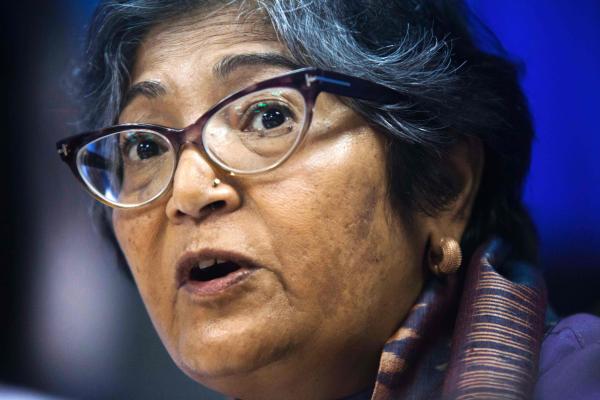A U.N. human rights commission raised many concerns on Thursday revolving around the intimidation of civil society activists, harassment of journalists and other rights abuses in South Sudan.
Officials from the U.N. Commission on Human Rights in South Sudan were speaking at a news conference in Juba the day after the editor of a prominent newspaper in the five-year-old nation said his publication had been shut down by the authorities, reported Reuters.
Political and security unrest has left many in the oil-producing nation of 11 million people, already one of the world’s poorest, in desperate need of food and support.
Fighting erupted in South Sudan at the end of 2013 between soldiers loyal to President Salva Kiir and those backing his former deputy Riek Machar. A peace deal signed in 2015 proved shaky and fresh clashes flared again in the capital in July. Machar has since left the country.
Yasmin Sooka, who led the U.N. commission team, listed concerns that included “the diminishing space for civil society which includes intimidation and harassment of its members”, adding that many activists have fled abroad.
She cited worries about media freedoms “and the continued intimidation and harassment of journalists”, alongside concerns about restrictions on the U.N. mission UNMISS and aid organizations that prevent them reaching the needy.
Sooka also reported “the ongoing impunity and lack of accountability for serious crimes as well as human rights in South Sudan, without which lasting peace cannot be achieved.”
The government insists it does not condone rights abuses and deals with perpetrators. However, both sides in what was an ethnically fuelled conflict have been accused of actions that could amount to war crimes.
Members of the commission, established in March 2016 to report on the rights situation since war flared in December 2013, said they met senior government officials, and proposed “the establishment of the hybrid court” to deal with abuses.
The United States and Britain, both big donors, have said they support African Union plans for a hybrid court to try war crimes committed during the conflict. Such a court could include lawyers and jurists selected by the international community.
